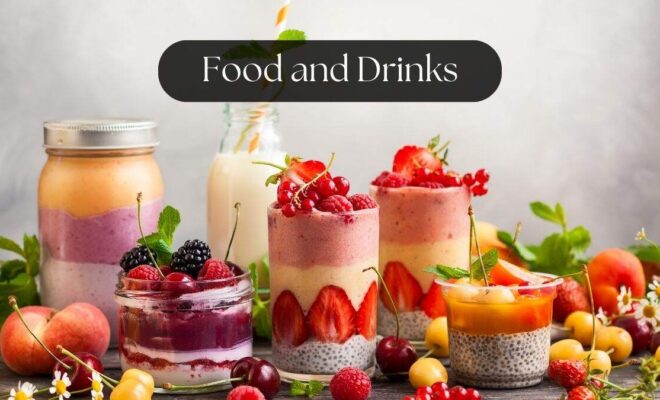Functional Foods for Mental Health: What to Eat for Better Focus and Mood

“This blog explores how Food and Drinks impact mental health, focusing on Brain boosting foods. It highlights nutrient rich options like fatty fish dark chocolate and leafy greens that improve focus reduce stress and enhance mood.”
Maintaining mental clarity and emotional balance is absolutely vital in the fast paced environment of today. While sleep exercise and therapy are all very important the effects of Food and Drinks on mental health sometimes go overlooked. Your mood concentration and general well being can all be much changed by what you eat.
The Connection Between Your Mental Health and Food
Like any other organ your brain needs the proper nutrition to operate at its best. Foods high in nutrients help to produce neurotransmitters lower inflammation and balance blood sugar levels all of which support improved mental health. Including the appropriate foods can boost mood and aid with focus.
Four Foods That Improve Your Mood
1. Salmon with Fatty Fins
High in omega 3 fatty acids, fish like salmon and mackerel improve brain function. Omega 3s lower inflammation and boost the synthesis of serotonin a neurotransmitter controlling mood.
2. Chocolate Dark Grey
Dark chocolate serves purposes beyond mere enjoyment. It has theobromine, caffeine, and flavonoids that might boost mood and sharpen attention. In moderation, it can offer mental clarity free of the sugar crash.
3. Leafy Greeneries
Full of folate, a vitamin connected to lower depression levels are spinach, kale, and other greens. They also provide antioxidants meant to shield brain cells from harm.
4. Berries
High in antioxidants, blueberries, strawberries, and blackberries help fight oxidative stress a factor driving brain aging and cognitive loss.
Foods Boosting Brainpower for Mental Clarity
There are some foods thought to improve cognitive abilities. Whole grains give your brain consistent glucose release, which fuels it all day. Rich in vitamin E, nuts and seeds are said to stop cognitive deterioration as one ages.
Full in choline, eggs help brain growth and memory. Furthermore included in green tea is L-theanine, an amino acid that lowers anxiety and enhances focus free from the jitteriness brought on by caffeine.
Mood-Enhancing Foods to Reduce Stress and Anxiety
Turning to the proper foods can help you naturally feel less burdened. Avocados, for example, have folate and beneficial fats that help to generate dopamine the “feel good” hormone.
Probiotics abound in yogurt and other fermentable foods, therefore boosting intestinal health. Lower stress and anxiety have been associated with a healthy gut, therefore underscoring the gut-brain link.
While oats give complex carbs that assist control mood by raising serotonin levels in the brain, bananas supply vitamin B6, which is vital for the synthesis of serotonin.
Diet for Better Focus and Concentration
Concentrating on a project for long stretches calls for steady energy and clear thinking. Including foods high in fiber, good fats, and antioxidants helps you stay focused.
Loaded in magnesium, iron, and zinc, pumpkin seeds boost brain function. Citrus fruits supply vitamin C, which sharpens cognitive skills and lessens mental tiredness.
Having Meals with Others Helps Mental Health.
Beyond only what you consume, your eating style also counts. Meals shared with others improve general well-being, strengthen social ties, and help to lessen loneliness. Eating together promotes conscious eating that is, where you are more likely to choose better foods and enjoy every mouthful.
For mental health, regular family dinners or meals with friends can also help to establish a routine and consistency. Just sitting down to eat together can boost mood and strengthen feeling of community.
Practical Advice for Nutritional Support for Mental Health
- Maintain hydration: Confusion and tiredness can follow from dehydration. Try for eight glasses of water minimum per day.
- Limit processed foods: Processed foods heavy in sugar and fat can induce energy dumps and mood changes.
- Harmony Your Meals: Every meal should feature a combination of proteins, good fats, and complex carbohydrates.
- Make plans ahead: Meal planning guarantees that you always have good selections, thereby lessening the temptation to choose less wholesful foods.
Conclusion
Your mental condition is highly influenced by your food. Including Brain-boosting foods, Mood-enhancing foods, and Foods for mental clarity helps you naturally maintain your mental health. Remember, eating is more than simply food; it’s also about keeping a balanced lifestyle and savoring meals with others. Today, take control of your mental health with deliberate eating and wholesome choices.










